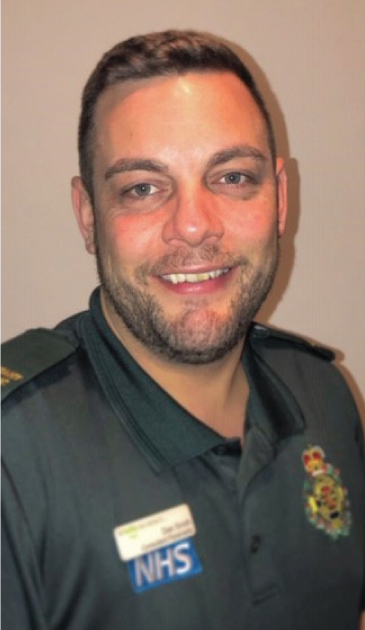
Having commenced my NHS career directly from school, my experiences of that initial learning curve were not dissimilar to a huge roller coaster. Although I happily strapped in for the ride, the steady rise to the top always had me wondering when I would break into freefall. Of course, I had some idea of what was about to happen; but even so, it was scary, exhilarating and full of twists, turns and surprises. In truth though, while there were some stomach-churning moments, my smile and happiness at the end of that initial learning journey were genuine—I had found the career for me.
There were so many lessons in those early weeks and months, but I do recall a particular realisation that I had been blissfully unaware of just how sheltered and, in comparison to many, privileged, my upbringing had been. Embarrassingly now, I suspect my naïve outlook on life must have been fairly amusing to my newfound NHS friends and colleagues. It was them, and the patients I was meeting, who began nurturing me into the clinician I am today, by exposing me to situations, emotions and harm that I had previously not thought possible. I only hope that today, I am doing justice to their teachings, humour, dedication, compassion and their resolute ‘patient first’ attitude.
I was not totally useless (I hope); I had developed enough emotional intelligence to appreciate my own limitations and took steps to stretch them. A huge weapon in my armoury was knowing when to be quiet, stand back, observe and listen. Of course, I asked questions, many, many questions, but I learned early in life that quietly listening and observing was beneficial.
In more recent times, I remember taking a junior colleague to a very senior meeting. Afterwards, we reflected and they commented on how little I had spoken and that I was not usually that quiet! We discussed that sometimes just listening is enough and that if they ever feel compelled to speak but with no real justification, they should reconsider.
Listening is a significant aspect of my leadership role but it cannot be empty, distracted or staged. I feel uneasy when I see the term ‘listening event’; it makes me wonder what happens the rest of the year! Listening should not have to be organised, but rather a constant state. In my role, I endeavour to ensure that I optimise every potential opportunity to learn through listening.
I suspect most organisations will have audit or check processes in place to ensure certain tasks are being carried out correctly. From mop changes, fire alarms and fridge management to medicines management and safeguarding people, there will be a tick list or audit somewhere to ensure things are on the right track. But is that the real picture? Rather than seeing a piece of paper, indicating that 100% of staff have received safeguarding training, I want to chat to staff so that I gain insight into what they have learned on that training, what they know, what they think and, most importantly, what they think we need to do to improve.
I have ensured that a significant chunk of my work is listening to others, testing what the written papers and graphs tell me. If an NHS survey says we are letting down our teams with a challenging culture, my reaction is to ask more questions, test the results with staff and ask them directly: the survey said this, does that feel right to you?
I ensure I set time aside for particular initiatives, such as coffee mornings with the teams, but I also ensure I stop and chat in mess rooms whenever I can. This next month is time for our regular quality visits, where traditionally we reviewed sites and vehicles with a clipboard and a list. Nowadays, the clipboard is gone and it's replaced with time to talk to staff. Checking quality for me is about testing process through the people who use them and not just checking that they do their required tasks; it's having a real conversation and understanding where we can improve.
One of the lessons from my early career was recognising the impact on a team when there is a perception that the senior leaders are too far away from process, not current and not visible. I have therefore made it my mission to ensure that I am not seen like that. One thing that is as true now in my senior role as it was when I started out is that knowing when to be quiet, stand back, observe and genuinely listen is absolutely essential for any leader wanting to improve quality.

